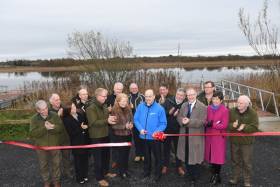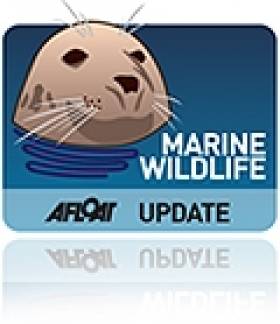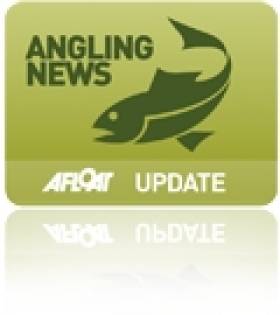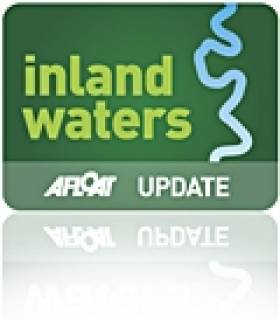Displaying items by tag: River Suck
Permit Required for Angling on River Suck in 2022
Inland Fisheries Ireland (IFI) has confirmed that a fishing permit will be required for angling on the River Suck and its tributaries for the 2022 season.
IFI manages the fisheries along the River Suck on the border of counties Galway and Roscommon on behalf of the ESB, which owns the fishery.
The State body for Ireland’s inland and inshore fisheries also moved to quash reports that the Midland Fishery Group permit has been abolished for the River Suck and its tributaries.
Details about the 2022 permit scheme for the River Suck and its tributaries can be found on the IFI website HERE.
New Angling Developments Launched In Roscommon & Leitrim
#Angling - Denis Naughten, Minister for Communications, Climate Action and Environment, has officially launched two new angling developments by Inland Fisheries Ireland (IFI) at Emlaghroyan in Roscommon and ‘The Mudflats’ at Carrick-on-Shannon in Co Leitrim.
A new match angling stretch has been provided at Emlaghroyan, on the River Suck in Roscommon, with upgraded car parking and drive-to-peg facilities.
This development involved upgrading existing roadways and the construction of new access roadway.
Ten new match angling pegs have been provided, with a capacity for further extension.
The Suck Valley Angling Hub were recently granted additional funds through the National Strategy for Angling Development (NSAD) to extend the match venue to further promote tourism angling and facilitate match competitions in the Roscommon/East Galway area.
Together with recently unveiled developments on the River Suck at Lough Acalla, the total investment in the River Suck project was €87,000.
In Leitrim, another major 2017 development project has been completed with an investment of €103,000, providing new facilities at ‘The Mudflats’ on the main River Shannon at Carrick-on-Shannon.
The new floating angling stand is accompanied by improved roadways and parking, upgraded toilet facilities and a new slipway.
This is another important match angling venue, used widely for international match angling events such as the World Pairs and the Carrick Angling Festival.
Speaking in Carrick-On-Shannon after the ribbon-cutting ceremony yesterday (Friday 1 December), Minister Naughten said: “I am delighted to mark the official opening of these developments today. Both were completed under the National Strategy for Angling Development (NSAD) and greatly enhance the angling infrastructure in both counties. They will provide a boost to angling tourism potential in the region, which in turn should increase visitor numbers.
“Furthermore, these projects would not be possible without the cooperation, agreement and vision of the respective landowners and I would like to thank all those involved for their contribution to these developments.”
More applications from the region are currently going through the NSAD assessment process, and aim to enhance the angling infrastructure in the upper Shannon areas as well as promote participation in angling.
Two weeks ago Minister Naughten unveiled new angling infrastructure in Galway and Athlone, as previously reported on Afloat.ie.
Temporary Angling Closure On River Suck Fishery
#Angling - Anglers are advised of a temporary closure of part of the River Suck fishery near Ballymoe, Co Galway.
The section of the River Suck fishery from Cloonroughan to Cloondacarra Bridge, through Cloontrask Townland, is temporarily closed from yesterday 16 September to Wednesday 30 September to facilitate necessary maintenance on the Suck Valley Way.
Suitable diversions and access can be followed from the Suck Valley Way maps at www.suckvalleywaywalks.ie
Dragonfish Discovery in River Suck Highlights Danger of Illegal Aquarium Releases to Native Wildlife
#marinewildlife – The recent discovery by a local angler of the decaying remains of an exotic fish specimen in the River Suck at Correen Ford in the Midlands has raised further concern of the threat to our native wildlife from aquarium releases by otherwise well-meaning individuals. This latest discovery followed by that of a Yellow-bellied Slider turtle on the River Maigue, in Co. Limerick last week.
Despite the partially decomposed state of the fish, Inland Fisheries Ireland (IFI) staff, in consultation with international experts, believe the six inch-long, sharp-toothed specimen to be a Dragonfish (also known as a Violet or Dragon Goby). This fish is native to North and South America and can be purchased in Ireland for private aquariums.
As it is regarded as a warm water species, the Dragonfish is not considered to be able to survive in the wild in Ireland. However, according to Dr Joe Caffrey, Senior Research Officer with IFI, "There are many exotic species of potential concern sold in the aquarium trade in Ireland. These include non-native freshwater fishes, crayfish and aquatic plants. If these are released to the wild they could seriously threaten our native biodiversity and ecosystem function, and the continued conservation of internationally important native species in our rivers and lakes. It is imperative that the public and all stakeholders are aware of the potential damage that exotic animals or plants which are deliberately introduced to the wild can inflict upon our unique wildlife and habitats."
In recent years, human-mediated introductions of non-native species such as Asian Clam, Australian Swamp Stonecrop, South African Pondweed and Zebra Mussel into Irish waterways have resulted in detrimental impacts to native species and habitats, degraded the amenity value of areas that become infested and required costly control measures to be implemented to mitigate these impacts.
Under the European Communities Birds and Natural Habitats Regulations 2011, the unlicensed release to the wild of any animal species, which is not ordinarily resident in Ireland or a regular visitor to the country, in a wild state is an offence.
Any sightings of exotic plants or animals found in or around our waterways can be reported to IFI through the 'IFI Invasive Species' smart phone app which is available to download from the Google Play and iTunes App stores.
The app aids users to report and identify exotic species and take geo-referenced photographs that can immediately be sent to IFI scientists for review. If the sighting is of something new or particularly worrying, this will trigger an immediate on-site survey by IFI staff. IFI want as many people as possible to use this app and help it in its ongoing battle against aquatic invasive species.
New Angling Guide for Lough O'Flynn and Upper Suck
#INLAND WATERWAYS - Inland Fisheries Ireland (IFI) officially launched the Lough O’Flynn and Upper Suck Angling Guide at the Old Stonehouse Restaurant in Ballinlough recently.
The guide opens to Lough O'Flynn, a 300-acre limestone lake situated 2km from Ballinlough and one of IFI’s many managed lakes requiring a permit.
This lake holds a stock of wild brown trout and is also stocked with brown trout each year which provides an excellent opportunity for all kinds of anglers and those wishing to take up the sport to learn how to fish for trout.
Meanwhile, the centrefold of the guide showcases the Upper Suck catchment from Lough O’Flynn through Co Roscommon and Galway until the Shiven tributary joins, along which good quality coarse, pike and trout angling can be expected.
With breathtaking scenery, this is the perfect place for anglers who can fish almost undisturbed from dawn till dusk.
There are also a considerable number of sections dedicated to anglers with disabilities, such as the Donamon angling stretch which has 30 fishing stands available with individual car parking bays and toilet facilities. This section has proven extremely popular, and IFI says it is committed to ensuring that sections like Donamon continue to open fishing up for everyone.
Amanda Mooney, director at IFI, said: “The guide offers a great source of information on angling hotspots for various types of species, access points and facilities, legislation and safety.
"All in all everything you need for planning a fishing trip. The guide and angling promotion in general supports local businesses and communities in sustaining jobs.”
The Lough O’Flynn and Upper Suck Angling Guide is available from IFI outlets and local permit agents in Ballinlough, Co Roscommon.
Inland Fisheries Ireland also marked the retirement of John Ryan, assistant inspector for Lough O’Flynn and the Suck catchment, after 41 years of service.
Ryan was involved in many areas and aspects of fisheries throughout his career, and was particularly noted for his positive engagement with various groups from angling clubs and development associations to local authorities, businesses and communities.
Warning of Low Water Levels on River Suck
Inland waterway Boaters on the Shannon Navigation should expect lower water levels than normal on the river Suck within 3km of Ballinasloe moorings. Deep drafted vessels should navigate with due caution. The full notice is attached.

































































